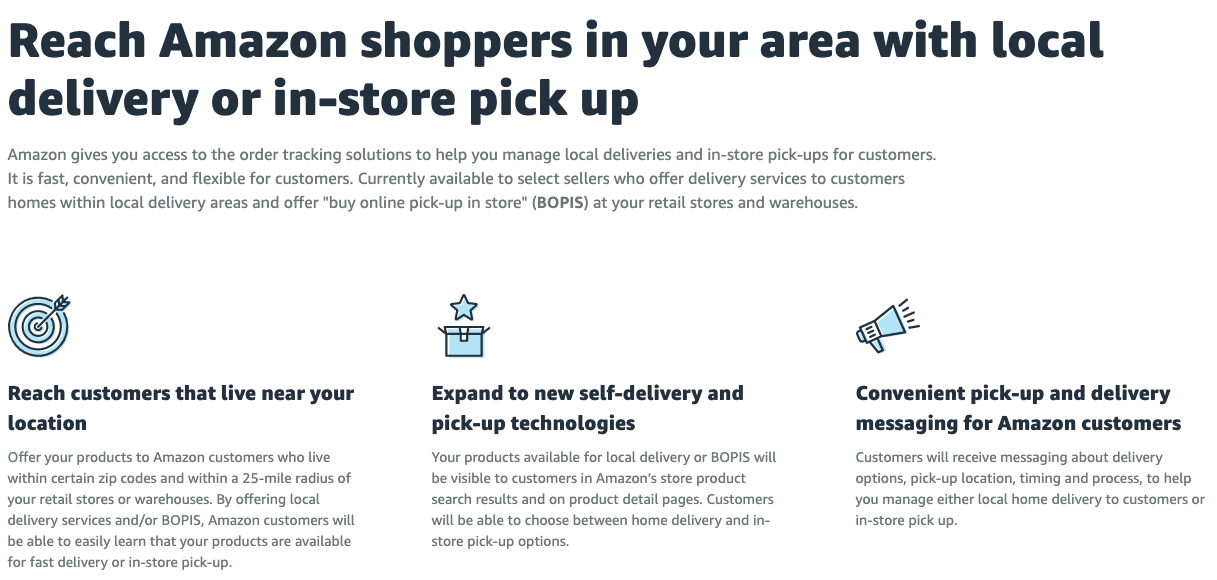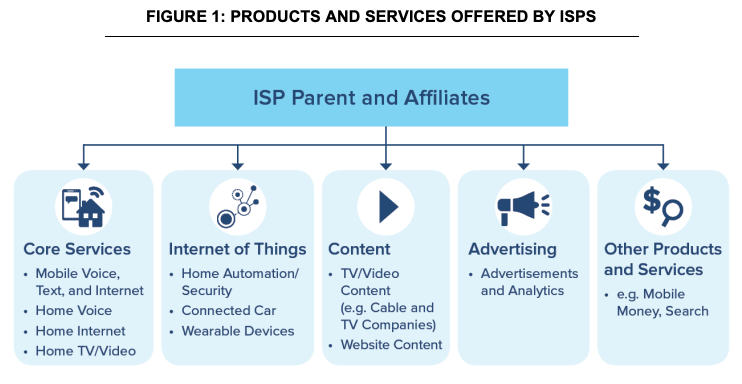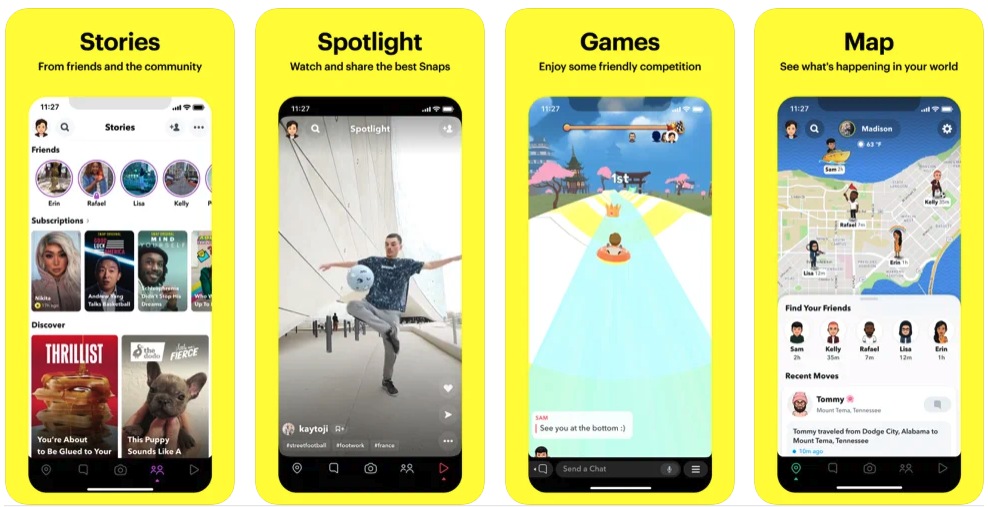Amazon Goes BOPIS, ISP Secret Surveillance, Apple Bites Snap

Amazon Goes BOPIS with 'Local Selling'
One of Google's strategies against Amazon is showing online and local product inventory in SERPs. Traditional retailers have sought to compete with Amazon by emphasizing the immediacy and convenience of their stores. Amazon fully understands all this and has been trying to remove "offline advantages" by speeding up delivery and making product returns simple (e.g., Whole Foods, UPS Stores, Kohl's). Now the company has introduced "local selling," which allows for same day pick-up or delivery locally. Essentially, Amazon is utilizing its sellers' local presence to better compete with rivals. The pitch to sellers is expand into local delivery and BOPIS: "You can combine the scale of Amazon with your unique in-store experience, while owning your product listing, images, and content for BOPIS-enabled products."

Our take:
- Amazon has always been a way for third party sellers to reach a national audience. Now the company is pitching "reach more local customers."
- Sellers must apply and we'll need to wait and see how much demand there is. But it could address an Achilles heel (local shopping).
- A new survey (.pdf) finds most Amazon customers only shop on Amazon. That is scary stuff if you're not Amazon.
FTC: ISP Data Privacy Worse than Big Tech
ISPs know a lot about their users, but their users don't know that. According to a new 74-page report from the FTC ("A Look At What ISPs Know About You: Examining the Privacy Practices of Six Major Internet Service Providers"), ISPs engage in extensive user tracking and sensitive data collection. The companies examined include AT&T, Comcast, Charter Cable, T-Mobile, Google Fiber and Verizon. Many ISPs combine data across product lines (TV, mobile, security, wearables), app usage and web browsing; they also group users by race, gender, religion, sexual orientation and "share real-time location data with third-parties" without knowledge or consent. These data practices are at least as invasive as anything on the big-tech platforms. And, for the most part, consumer choice and control over data privacy is "illusory," according to the FTC.

Our take:
- ISPs have mostly escaped the public scrutiny experienced by Amazon, Google, Facebook and Apple. Perhaps no longer.
- The FTC concludes, ISPs' free rein over data collection contains potential for abuse and recommends "restricting the collection and uses of data."
- One answer is to make all online data collection opt-in. Opt-out burdens and confuses people; it also allows the fiction of consumer control.
Snap's Earnings, Apple 'Privacy Theater'
Snap disappointed investors when it released its Q3 earnings. It was a $1+ billion quarter with largely positive news, but missed Wall Street consensus revenue estimates. Snap blamed Apple's opt-in tracking and said Q4 may be weaker than expected too. This may be scapegoating or it may be largely true. We'll know more as other companies (especially Facebook) post Q3 numbers. Apple's privacy rules have impacted data vendors and ad platforms, as less than 20% of US consumers have opted-in. Yet some Apple critics have claimed that app tracking rules are a form of "privacy theater" and essentially meaningless. According to a report by Lockdown, some app developers, blocked from collecting the IDFA, are fingerprinting devices and capturing a wide range of data, including IP address, browser, carrier, battery and volume levels and other data, which enables profiling – not unlike the FTC complaints about ISPs.

Our take:
- Ok, so: Are Apple's privacy rules purely symbolic or do they have bite? Did Apple actually cause Snap to miss, or is Snap just blaming Apple?
- The significant thing about Apple's opt-in rules is the UX, which resulted in consumers being able to express privacy preferences for the first time.
- For long-term success, however, Apple will need to really crack down on fingerprinting and expel violators from the App Store.
Recent Analysis
- Near Memo episode 37: FTC lays review fine groundwork, Amazon creates offline Xmas catalog, Google Lens surfaces Local Packs.
- FTC to 700+ Brands: Deceptive Endorsements Will Lead to Financial Pain, by Mike Blumenthal.
Short Takes
- Local SEO tactics, characteristics of top ranked grocery stores.
- Twitter: Our algorithm seems to amplify right-wing content.
- After global pact, US to drop tariffs on "digital tax" countries (NYT).
- Differences of opinion: whether/when society will become cash-free.
- Where "The Great Resignation" is happening – geographically (WaPo).
- Worker shortage: Employers not employees may be the problem.
- Restaurant SaaS company Olo buys personalization platform Wisely.
- Microsoft becomes Shopify partner, further extending platform's reach.
- Facebook's Oversight Board chides company for lack of transparency.
- The pandemic actually wound up helping many tech companies.
- Amazon now delivers more packages than FedEx.
- Facebook doesn't know how many duplicate accounts it has. (WSJ).
Listen to our latest podcast.

How can we make this better? Email us with suggestions and recommendations.

